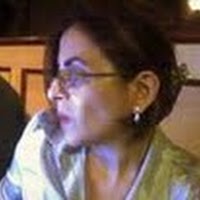A quick note on constructivism and connectivism as learning theories or approaches:
after following a number of reflections and reading few articles and papers included in pre-week 1 and week 1 Readings, I see or understand that we gain and store knowledge in the memory using constructivie or constructivism approaches. Then, we claim that we know and understand something or a lot of things about certain topics or issues because we remember that we read or heard about these things. The real test of our knowledge and understanding of these certain issues or things happen when we connect with other people - (students, colleagues, friends, or family members, for example) - in any kind of situation, be it formal or informal, face-to-face or online, to talk about or discuss these topics. At this point, we discover how much we know about certain thing, and this is how we know whether we do know or don't about anything and then start searching and learning more through our connections, be it a community of practice online or any other kinds or forms of network or resource we refer to in order to learn more about certain topics aiming to clarify vague knowledge we do have and stored in our memories or to confirm the accuracy or truth about that kind of knowledge. This is what I understand as learning using connectivist approach. So, for me constructivism is the theory that helps us to see how we collect or gain knowledge which we accumulate and store in the long-term memory while connectivism is the theory that helps us test what and how do we know that we know something or a lot of things about anything and how we used and are using this knowledge; in other words connectivism is the practice that helps us see and know how much knowledge we absorbed, understood, learned, and used / are using and also confirms or corrects vague or inaccurate knowledge stored in the memory. This learning or testing process, which is a unique characteristic of the connectivism learning approach or method can only happen through our direct or indirect involvement in or interaction with people or "links" (we know or don't know) in a connected network(s) of learning online preferably since new technologies well support this kind of learning. A good example of all that said above is this very answer of mine here to the main question of Week 1, What Is Connectivism? Notice that I consider my answer here as a good test of my knowledge about Connectivism that I gained and stored in my long-term memory throughout the past few years from following articles and presentations by George Siemens and Stephen Downes and recently from couple of papers and articles new to me and included in Week 1 of the course, CCKC. So, by answering the question, What Is Connectivism? I am also trying to use the knowledge I've absorbed and learned about connectivism, and I am sure that some vague knowledge I have about this concept will either get clarified while I am writing now or would be clarified and become clearer to me through direct comments to my input here or through comments to other posts by other participants to the various platforms of the course network of learners everywhere. Furthermore, I also see that Constructivsm and Connectivism theories of learning work hand in hand, and they cannot work separately or independently! We cannot ignore one on the account of the other because it is impossible to interact and discuss a certain topic through a learning network if we don't have (little or a lot of) knowledge about the topic that has been constructed and stored in the long-term memory earlier. Having said that, I can think of Constructivism as knowledge building system or process or theory that is static and Connectivism as knowledge filtering, learning, practicing, and using / implementing process or theory (dynamic)! I can also think of Constructivism within the framework of individual / personal formal learning while Connectivism is within the framework of social / networked informal learning.
Please note, this answer to the question, "What Is Connectivism?" might be modified, changed, improved throughout the 12-week course time as I am expecting myself to gain, construct, and store more knowledge on connectivism which I'd further filter, absorb, understand, learn, and use later so to be able to grow and move on.
Thursday, September 11, 2008
Subscribe to:
Post Comments (Atom)




No comments:
Post a Comment